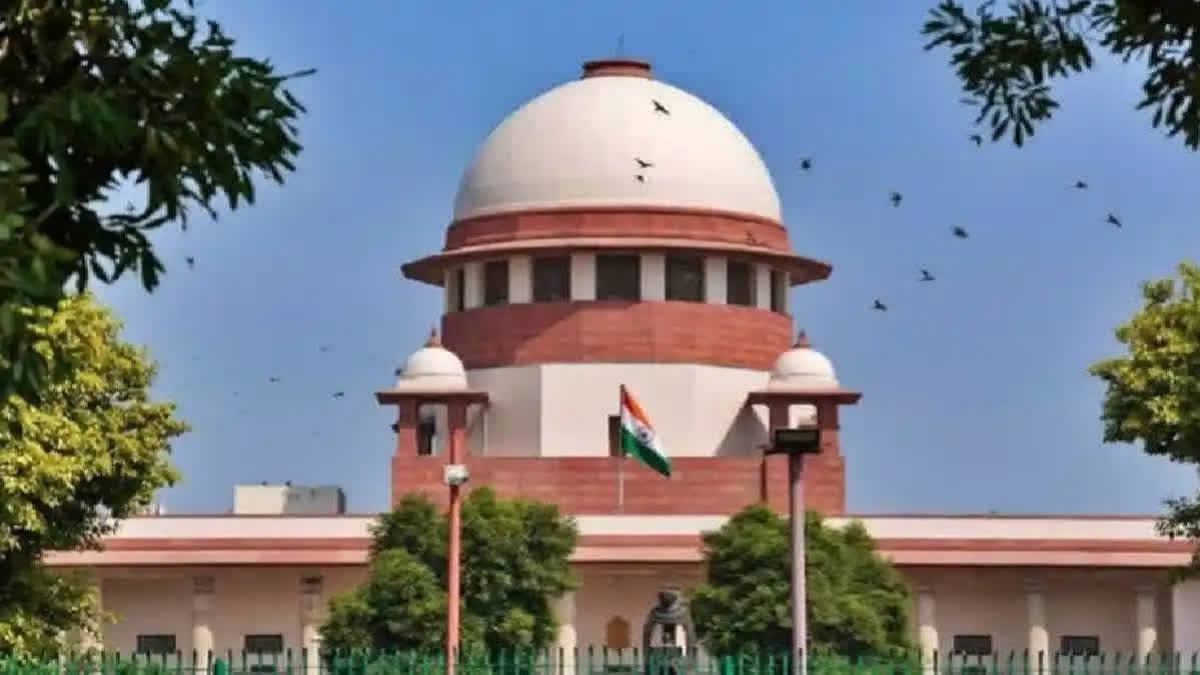New Delhi: The Supreme Court on Thursday said a person cannot be deprived of his property without being paid adequate compensation in accordance with the law for the same while criticising the Karnataka government authorities for making land owners suffer without compensation for 22 years.
A bench of Justices B R Gavai and K V Vishwanathan said the right to property ceased to be a fundamental right by the Constitution (Forty-Fourth Amendment) Act, 1978, however, it continues to be a human right in a welfare state, and a constitutional right under Article 300-A of the Constitution. Article 300-A of the Constitution provides that no person shall be deprived of his property save by authority of law. The state cannot dispossess a citizen of his property except in accordance with the procedure established by law.
The bench said, however, that human rights are gaining an even greater multifaceted dimension and that the right to property is considered very much to be a part of such a new dimension.
"Though the Right to Property is no more a fundamental right, in view of the provisions of Article 300-A of the Constitution of India, it is a constitutional right. A person cannot be deprived of his property without him being paid adequate compensation in accordance with law for the same," said the bench, in its 57-page judgment.
The apex court criticised the Karnataka government authorities for making land owners Bernard Francis Joseph Vaz and others suffer without compensation for 22 years. The bench said the state authorities were in deep slumber from 2003 to 2019 and acted for the first time only after the notices were issued in contempt proceedings.
"In the present case, it can clearly be seen that there is no delay which can be attributed to the appellants in not getting compensation, but it was on account of the lethargic attitude of the officers of the State/KIADB that the appellants were deprived of compensation," said the bench. The apex court allowed the appeal filed by Vaz and others.
The apex court, in exercise of its extraordinary power under Article 142 of the Constitution to do complete justice, directed for determination of the market value of the land in question as on April 22, 2019. "If the compensation to be awarded at the market value as of the year 2003 is permitted, it would amount to permitting a travesty of justice and making the constitutional provisions under Article 300-A a mockery," the bench said.
In the present case, the land was acquired for the infrastructure corridor project connecting Bengaluru-Mysuru. The apex court directed the Special Land Acquisition Officer to pass a fresh award within a period of two months.
The bench noted the possession of the appellants’ land was taken over by the Karnataka Industrial Area Development Board (KIADB) on November 22, 2005, and subsequently handed over to Nandi Infrastructure Corridor Enterprise and its sister concern Nandi Economic Corridor Enterprises Ltd. The bench noted that no award was passed immediately for such acquisitions.
“It cannot be gainsaid that the appellants herein have been deprived of their legitimate dues for almost 22 years ago. It can also not be controverted that money is what money buys. The value of money is based on the idea that money can be invested to earn a return and that the purchasing power of money decreases over time due to inflation", said the apex court.
The bench said, “What the appellants herein could have bought with the compensation in 2003 cannot do in 2025. It is, therefore, of utmost importance that the determination of the award and disbursal of compensation in case of acquisition of land should be made with promptitude”.
The apex court set aside the Karnataka High Court's judgment delivered on November 22, 2022, which rejected the plea of the appellants’ for determining compensation as per the current market value.



